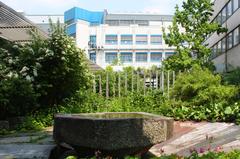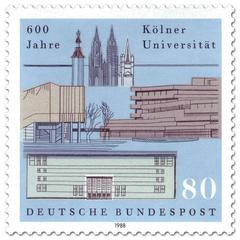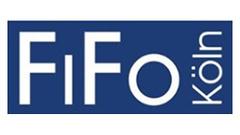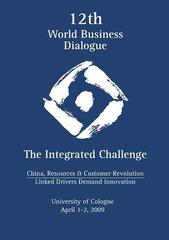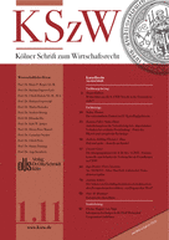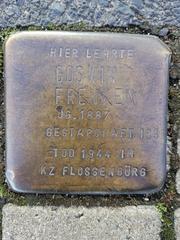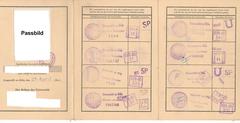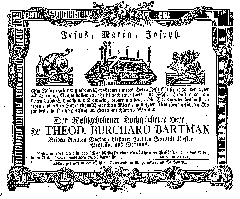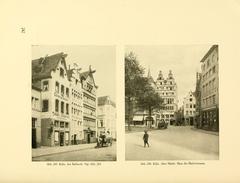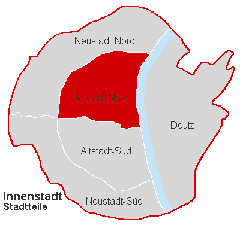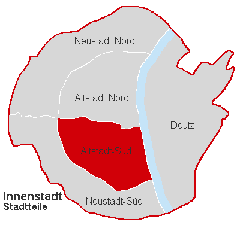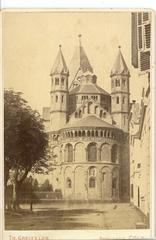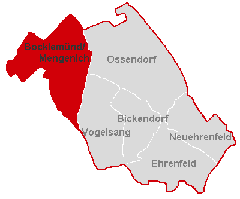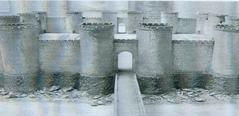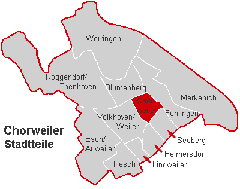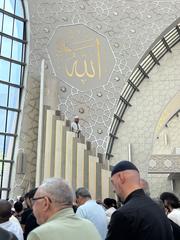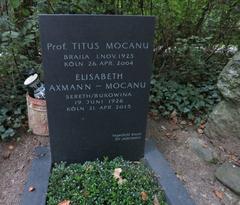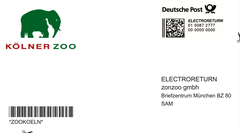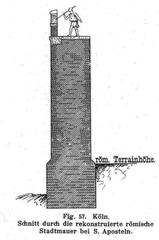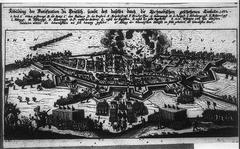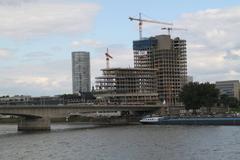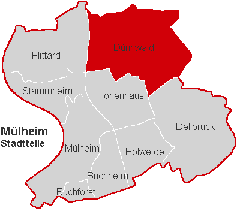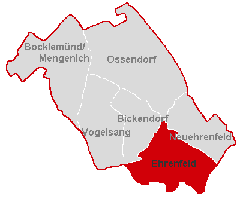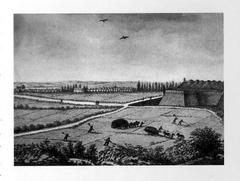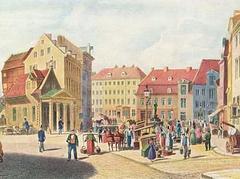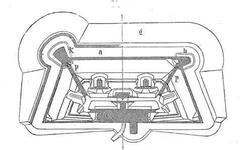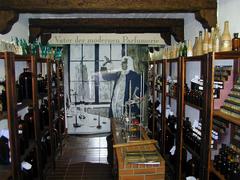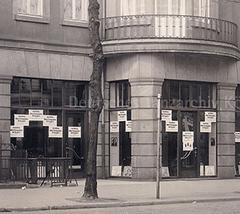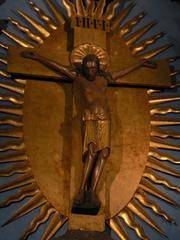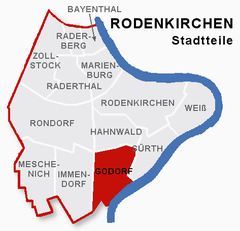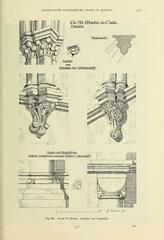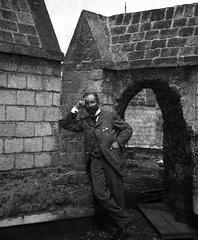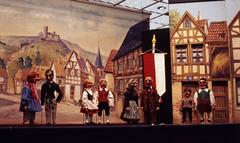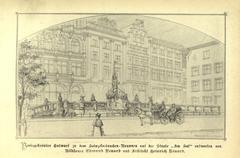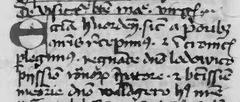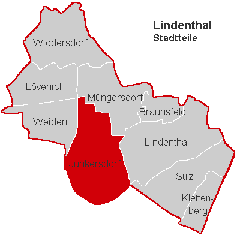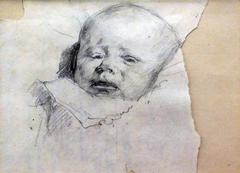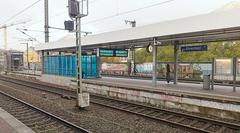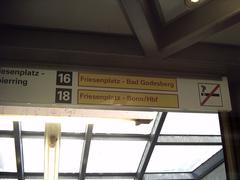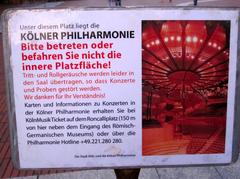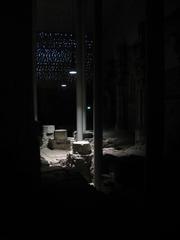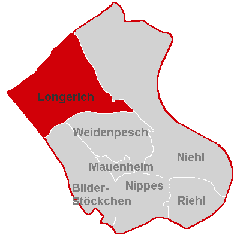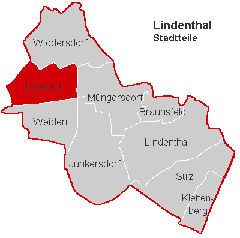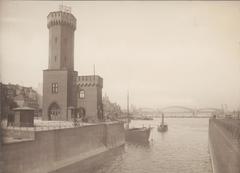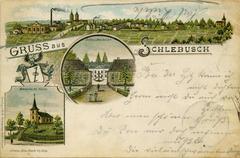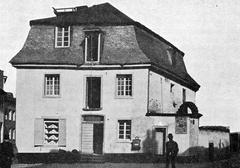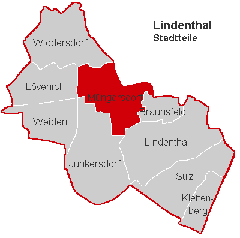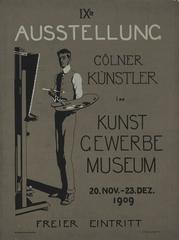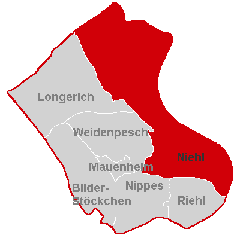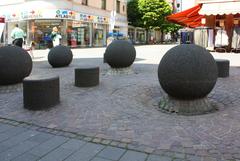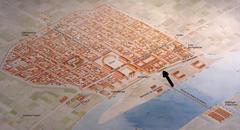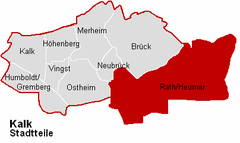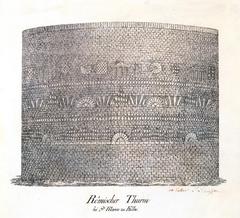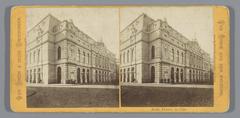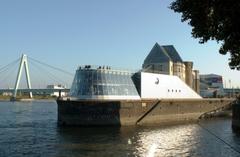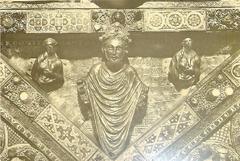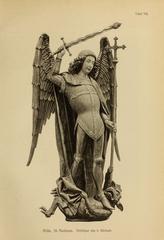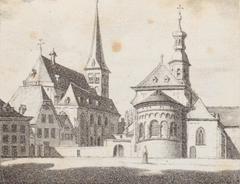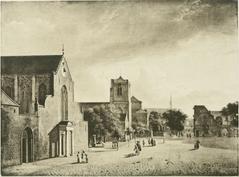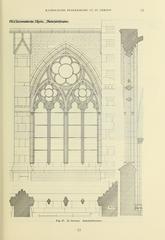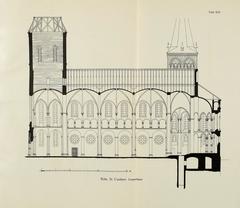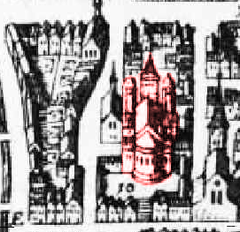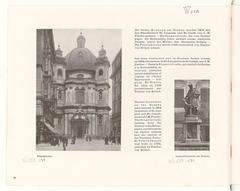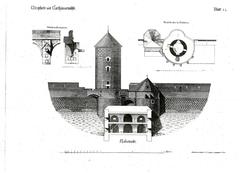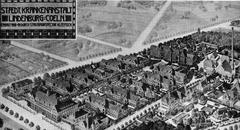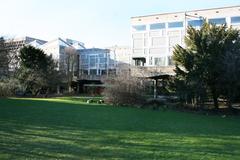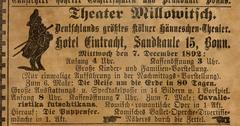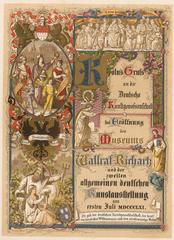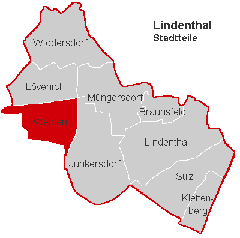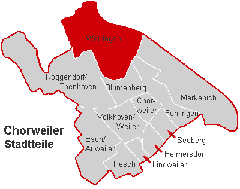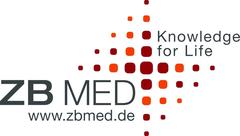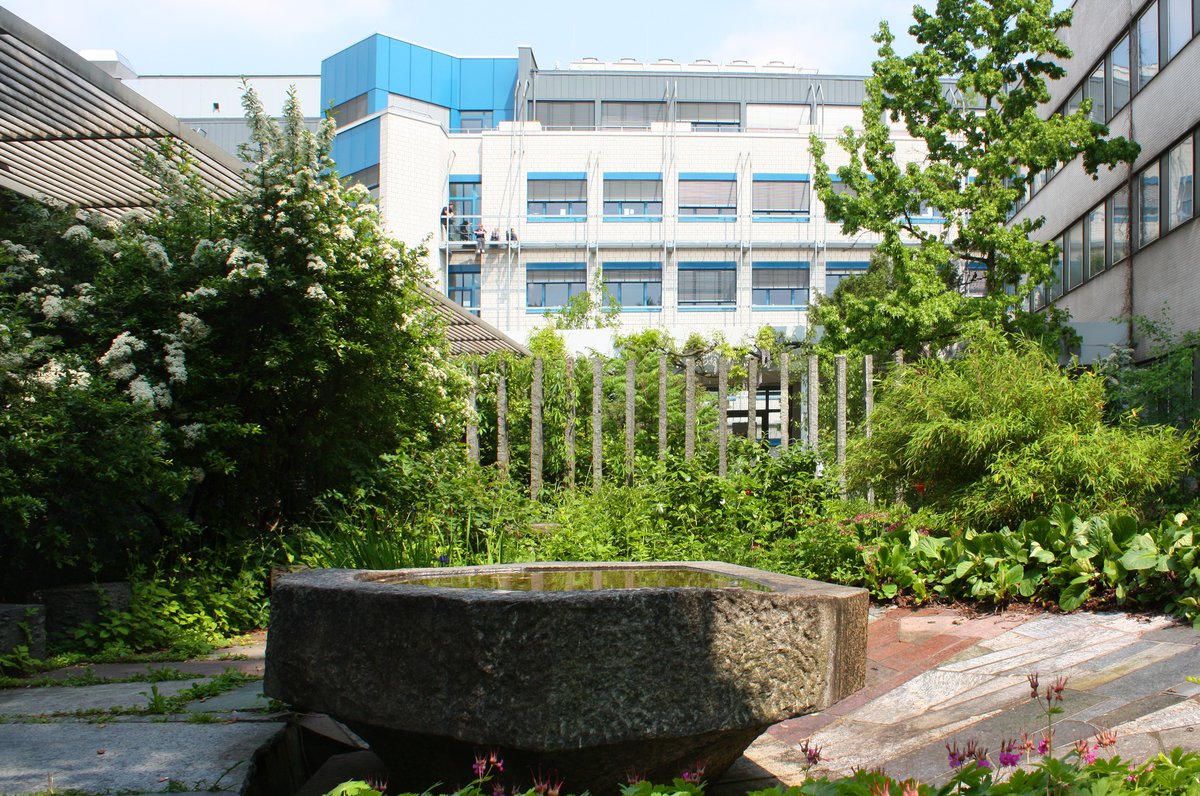
University of Cologne Visiting Hours, Tickets, and Historical Sites Guide
Date: 14/06/2025
Introduction: The Legacy and Significance of the University of Cologne
Located in the heart of Cologne, Germany, the University of Cologne (Universität zu Köln) stands as a beacon of academic excellence and historic significance. Established in 1388, it is one of Europe’s oldest universities and boasts a unique blend of medieval tradition and modern innovation. The university’s campus, nestled in the lively Lindenthal district, offers a compelling mix of historical architecture, leafy walkways, and vibrant student life. As a cultural landmark, it is closely tied to the city’s intellectual and social development, making it a must-visit for anyone exploring Cologne’s rich heritage.
This guide provides all the essential information for prospective visitors, including up-to-date details on visiting hours, ticketing, guided tours, accessibility, nearby attractions, and practical travel tips. Whether you are interested in the university’s architectural splendor, wish to attend a public lecture, or are simply looking for a scenic spot near Cologne’s iconic Old Town and Cathedral, you’ll find everything you need to plan your visit. For the most current updates and resources, consult the University of Cologne Official Website.
Table of Contents
- Introduction
- Historical Overview
- Visiting Hours and Accessibility
- Ticket Information and Guided Tours
- Campus Highlights and Key Facilities
- Surrounding Neighborhoods and Local Life
- Accessibility and Transportation
- Nearby Attractions and Historical Sites
- Events and Cultural Activities
- Dining and Visitor Amenities
- Practical Tips for Visitors
- Frequently Asked Questions (FAQ)
- Useful Contacts and Resources
- References
Historical Overview
Founded in 1388 with the approval of Pope Urban VI, the University of Cologne quickly became a prominent center for theological, legal, philosophical, and medical studies in the Holy Roman Empire. Despite periods of closure—most notably during the French occupation in 1798 and challenges in the 20th century—the university has continually reinvented itself, re-emerging in 1919 as a leading research institution. Today, the university’s architecture reflects its storied past, with the neoclassical Hauptgebäude (main building), modern lecture halls, and restored historical sites contributing to its distinctive campus atmosphere.
Visiting Hours and Accessibility
General Campus Access
- Campus Hours: Monday to Friday, 8:00 AM to 6:00 PM. Some buildings, such as libraries, may offer extended hours—refer to specific facility websites for details (University Library).
- Public Areas: Entry to the university grounds and many public spaces is free of charge. Certain areas may have restricted access during academic breaks or special events.
- Accessibility: The campus is equipped with ramps, elevators, and accessible restrooms. Assistance is available at the main information desk and online (Campus Accessibility).
Transportation
- Public Transport: The university is easily reached by KVB tram and bus lines. Nearest stops include Universität and Dasselstraße/Bf Süd. The KölnCard offers unlimited travel and discounts on local attractions (Cologne Public Transport).
- Bicycles & Walking: Ample bike racks and pedestrian-friendly paths make exploring the campus and surrounding Lindenthal district easy and enjoyable.
Ticket Information and Guided Tours
- General Entry: No ticket or entrance fee is required for campus access or most public buildings.
- Special Events & Exhibitions: Some events, guided tours, or exhibitions may require advance booking or tickets. Check the official University of Cologne website for updated schedules and booking information.
- Guided Tours: Periodically available, particularly during open days and academic festivals. Private tours can also be arranged through local operators, offering deeper insights into the university’s history and architecture (Campus Tours).
Campus Highlights and Key Facilities
Main Building (Hauptgebäude)
A neoclassical architectural landmark, the Hauptgebäude houses the Rectorate and is well known for its grand façade facing Albertus-Magnus-Platz—a favorite photo spot.
University Library (Universitäts- und Stadtbibliothek Köln)
As one of Germany’s most extensive academic libraries, it features over 4 million volumes and regularly hosts exhibitions open to the public.
Student Life Facilities
The campus offers a variety of amenities, including cafeterias (Mensa), cafés, and quiet study areas. Facilities are designed to be inclusive and accessible for all visitors.
Botanical Garden (Flora und Botanischer Garten Köln)
Just a short walk from campus, this botanical garden is affiliated with the university and features over 10,000 plant species. Entry is free (Flora Köln).
Surrounding Neighborhoods and Local Life
The Lindenthal district is renowned for its green spaces, charming cafés, and student-friendly atmosphere. The Belgian Quarter, a nearby hotspot, offers vibrant nightlife, independent boutiques, and eateries. Parks such as Hiroshima-Nagasaki Park and Stadtgarten are perfect for relaxation and outdoor activities.
Accessibility and Transportation
- Wheelchair Access: The university ensures barrier-free access across campus with ramps and elevators.
- Public Transport: Major tram and bus lines connect the university to the city center and main train station.
- Parking: Limited on-site; public transport is recommended for convenience.
Nearby Attractions and Historical Sites
- Cologne Cathedral (Kölner Dom): A UNESCO World Heritage Site and one of Germany’s most iconic landmarks, easily accessible by tram (Cologne Cathedral).
- Old Town (Altstadt): Explore Romanesque churches, historic squares, and riverside promenades.
- Museums: Museum Ludwig, the Roman-Germanic Museum, and others are within walking distance.
- Rhine River Cruises: Enjoy scenic views of Cologne’s skyline (Rhine River Cruises).
Events and Cultural Activities
The University of Cologne hosts public lectures, exhibitions, concerts, and academic conferences throughout the year, many of which are open to visitors. Major events are often timed with city-wide festivals such as Carnival and Christmas markets.
Dining and Visitor Amenities
- Cafeterias and Mensas: Affordable meals with vegetarian and vegan options are available on campus.
- Cafés & Breweries: The surrounding neighborhoods offer a variety of traditional Kölsch breweries, international cuisine, and cozy cafés.
Practical Tips for Visitors
- Best Time to Visit: Spring and autumn offer pleasant weather and vibrant campus life.
- Language: German is the primary language, but English is widely spoken in academic settings.
- Wi-Fi: Guest Wi-Fi is available across most campus facilities.
- Safety: The campus and surrounding areas are safe; standard urban precautions apply.
- Accommodation: Hotels and hostels are available in Lindenthal and Cologne’s city center.
Frequently Asked Questions (FAQ)
Q: Is there an entrance fee to visit the University of Cologne?
A: No, general campus access is free. Tickets may apply for special events or guided tours.
Q: Are guided tours available?
A: Yes, primarily during open days and special events. Private tours can be arranged.
Q: Is the campus accessible for visitors with disabilities?
A: Yes, with barrier-free facilities and assistance available.
Q: What are the best nearby attractions?
A: Cologne Cathedral, the Old Town, and the Botanical Garden are all close by.
Q: Where can I find more information?
A: Check the University of Cologne’s official website and Cologne Tourism.
Useful Contacts and Resources
- University Information Desk: Main building, providing maps and visitor assistance (University of Cologne)
- Tourist Information Cologne: Kardinal-Höffner-Platz 1, +49 (0) 221 346 430, [email protected], Cologne Tourist Board
Final Tips and Summary
A visit to the University of Cologne offers a fascinating window into centuries of scholarship, architectural beauty, and vibrant student life. With its open campus, accessible facilities, and proximity to Cologne’s top sights, it is ideal for history enthusiasts, prospective students, and travelers alike. Use public transportation for convenience, check event calendars for special activities, and consider digital resources such as the Audiala app for enhanced tours and audio guides. For the latest updates, follow the university’s social media channels and official website.
References
- Visiting the University of Cologne: A Historic Landmark and Cultural Attraction, 2025, Universität zu Köln (https://www.uni-koeln.de/)
- Visiting the University of Cologne: A Monumental Experience in the Heart of Cologne, 2025, Universität zu Köln (https://www.uni-koeln.de/)
- Campus and Surroundings, 2025, Universität zu Köln (https://www.uni-koeln.de/en/studium/studierende/campusleben-mitbestimmen/the-campus)
- University of Cologne Visiting Hours, Tickets, and Historical Highlights, 2025, Universität zu Köln (https://www.uni-koeln.de/en/international/study-in-cologne/accommodation-for-international-students)
- Cologne Tourism, 2025, Cologne Tourist Board (https://www.cologne-tourism.com/arts-culture/sights)
